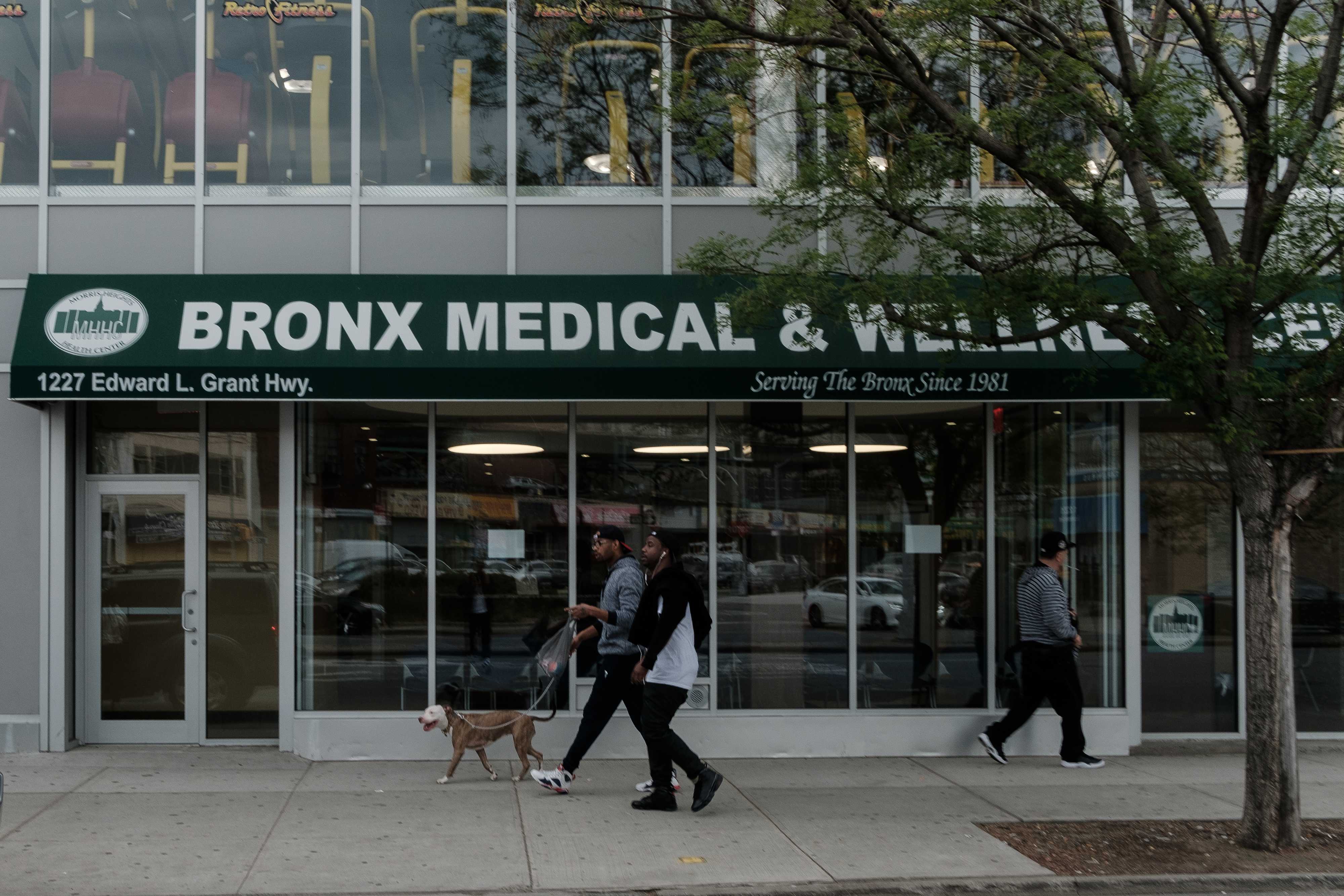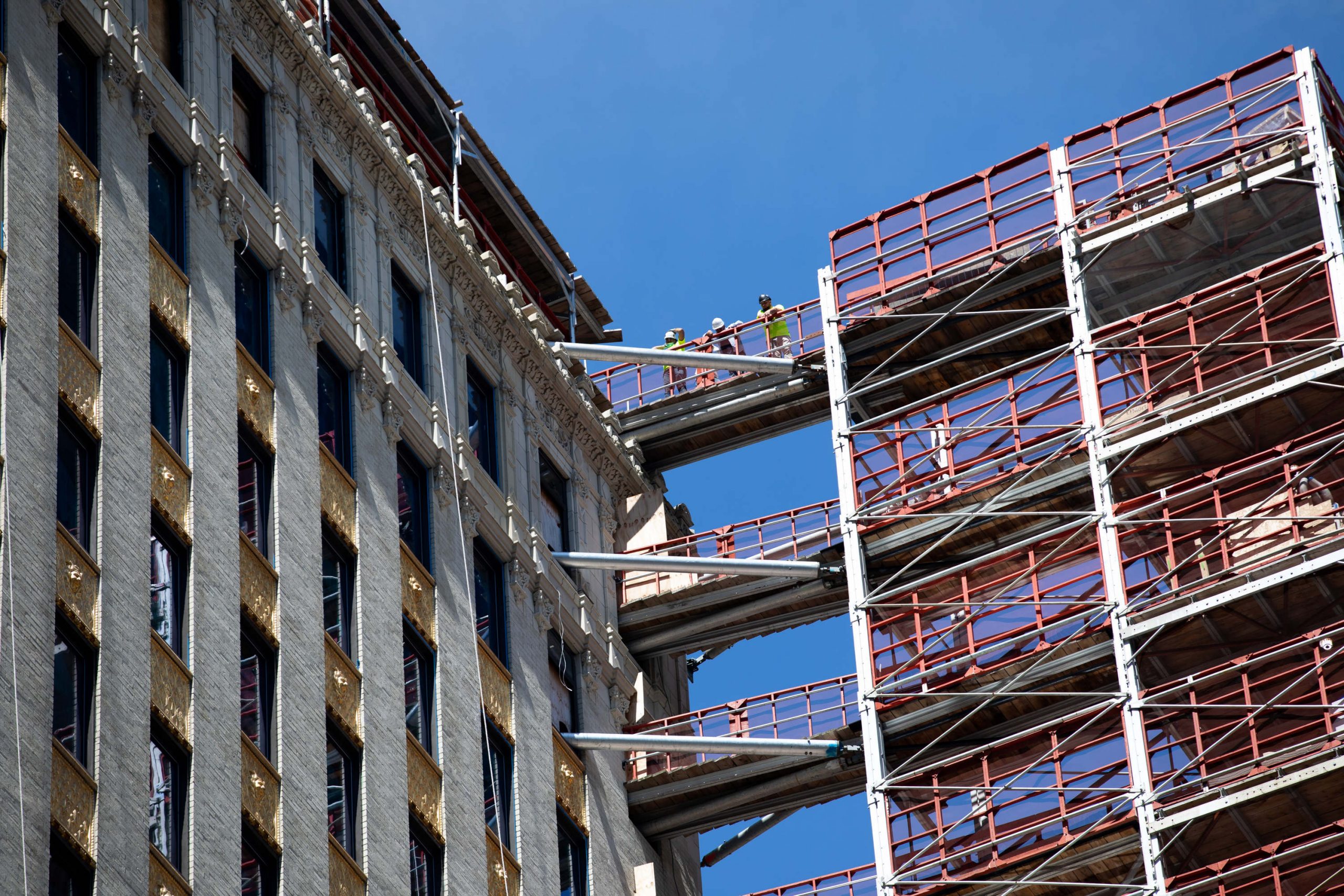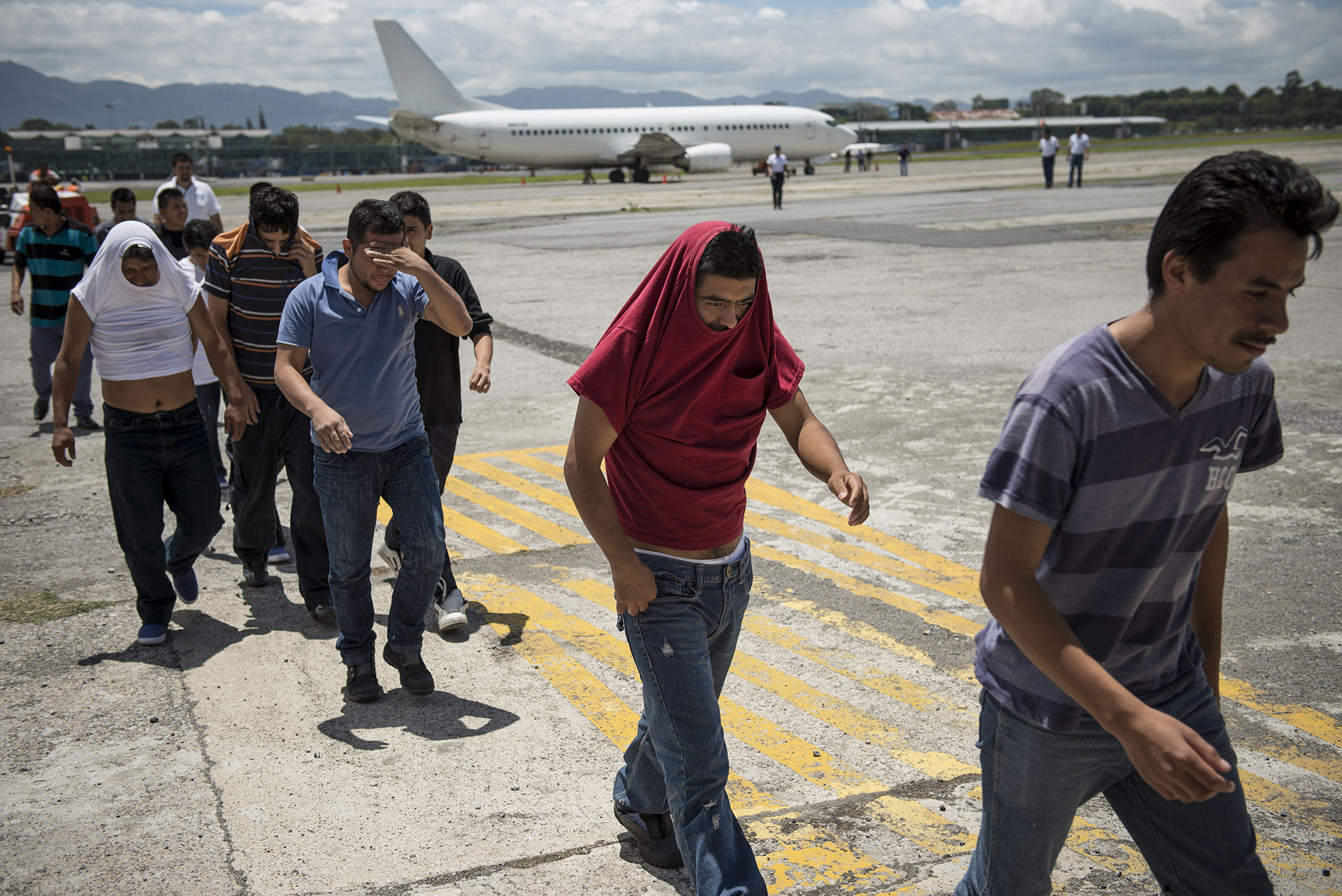Workers at the Hispanic AIDS Forum were worried when their HIV-positive client did not pick up the phone for three straight weeks. Finally, they went to his apartment in Queens, only to learn that he had died at home from COVID-19. The body had been removed before the client’s sister, his only known family, could claim it.
“When he came to us he was very young, very youthful and had a beautiful energy,” said Heriberto Soto-Sanchez, the director of Hispanic AIDS Forum. “Everybody just loved him.”
The man, a 39-year-old undocumented restaurant worker from Mexico, came to the United States to escape the stigma surrounding his HIV status. His sister did not want his identity revealed because his family was unaware of his condition.
The fear that kept this man in the shadows likely kept him from venturing out to seek treatment while he was suffering from the coronavirus. Now HIV health advocates and medical experts are gravely concerned that such behavior could cause deaths to multiply.
Before the coronavirus, New York City was once an epicenter for another fatal virus, a disease that took decades to control — AIDS. Advocates fear immigrants living with HIV — especially the undocumented — are more vulnerable than ever to succumb to this new danger. Many are afraid of seeking medical care because of their status, and the organizations they relied on to provide testing and counseling, no longer have money to offer their services.
Now, the coronavirus pandemic has disrupted the very services born out of the HIV epidemic and threatens the futures of both these organizations and their clients. Some staff members even predict an influx in HIV cases and deaths, as they are forced to cut services to their clients.
Gustavo Morales, the deputy director of the Latino Commission on AIDS, recalled a client asking bluntly: “I survived an epidemic 30 years ago, am I going to die now in this one?”
Community struggles with grief and trauma
COVID-19 is exacerbating the many challenges immigrants already face. In addition to treating their HIV, many are dealing with the stress of pursuing green cards, work, and housing while seeing people they know die from the pandemic. On top of all of this, they are just trying to stay alive.
Their isolation intensifies an already anxious time.
“They don’t have the luxury of Netflix to binge watch shows,” Leandro Rodriguez, Latino Commission on Aids director of programs said.
According to Latino Commission on AIDS and Hispanic AIDS Forum, clients have still been able to get their medicine delivered. Even if they are regularly taking medication, however, organizations say poor mental health can adversely affect their immune system.
A study from the American Journal of Psychiatry showed that the risk of HIV-related death increased by 22% for a single experience of trauma. When three traumas are experienced, the risk increases to 83%.
According to Sanchez-Soto, stress can trigger an increase in the viral load which can make a person living with HIV more susceptible to illnesses like COVID-19. Even though Sanchez-Soto said his client who passed away was taking medication, he thinks that the stress of living alone and having a vulnerable job in the restaurant industry while being undocumented contributed to the client’s death.
“It becomes a nightmare,” Sanchez-Soto said. “So you can imagine what the stress level would be.”
Hispanic AIDS Forum has already lost two other clients and has reported 30 more clients with COVID-19.
The Latino Commission on AIDS staff has reported many of their immigrant clients also expressing anxiety, depression and suicidal tendencies.
Enid Ramos, 55, lost three close friends to the coronavirus in just one week — two of them were immigrants living with HIV. Shortly after, she got a call that a fellow member of Poder Latino, a support group by Latino Commission on AIDS for Spanish-speaking people living with HIV, was also sick and in the hospital.
Ramos has been unable to grieve with her support group due to the city-wide lockdown.
“I’m still afraid, not knowing what’s going to happen,” Ramos said. “Because every time, there are more people that are passing.”
Services for HIV-positive clients are limited
The number of new HIV diagnoses decreased by 11% from 2017 to 2018, with diagnoses falling below 2,000 for the first time, according to the New York City Department of Health. Of the city’s new diagnoses in 2018, 607 people were born outside of the U.S, about one-third of the total.
Despite great strides in reducing HIV diagnoses, the lockdown has halted many of the services the Latino Commission on AIDS offers, and therefore, much of its funding.
“We’re the people that they see even before they go to the hospital, before becoming a statistic,” Morales said.
While the organization has converted to tele-services with clients, their programs beyond medical care have been halted. With limited funding for COVID-19 related services, Latino Commission on AIDS is struggling to offer assistance like food delivery or virtual counseling.
“It is very concerning to me that often people rely on these organizations so much for services and for community,” said Denis Nash, an epidemiologist at the CUNY Graduate School of Public Health and Health Policy. “Pandemics, like many other health issues, really show all the fissures, and weak spots in our very fragmented health system.”
Community groups lose support
Every month, the Latino Commission on AIDS is reimbursed for the expenses of providing these specifically in-person services and programs by federal, New York state and New York City grants. In the wake of the coronavirus pandemic, the organization has yet to receive confirmation that they will continue to be reimbursed.
The monthly expenses usually range from $20-25,000 per program, with 12 programs currently offered.
Because of the ban on large gatherings, they’ve also had to cancel their annual fundraising gala scheduled for this June which usually brings in 45% of their yearly operational costs. This is about $2,205,000 of their most recent reported revenue, according to tax documents.
“They’re losing that first moment of care, they’re losing the capacity to build that support system of peers,” Rodriguez said, “because we can’t be there with them.”
Despite this cut in funding, New York City Health and Hospitals advised care providers like Latino Commission on AIDS to maintain HIV care through virtual consultations.
Even after the pandemic passes, Latino Commission on AIDS is unsure whether they will be able to recoup the funding the organization has lost.
“People with HIV are vulnerable. I also think that the organizations that serve them are vulnerable,” Nash said. “I worry that it might be hard for some of these organizations to recover and get back to the place where they were.”
While many organizations are focused on the immediate effects this pandemic will have on the HIV-positive immigrant community, Morales predicts there could be an uptick in HIV transmissions due to the halt in testing and treatment services.
“My theory is,” Morales said, “once again, we’re going to start seeing this influx.”
As for Sanchez-Soto’s client, he will not be able to have a proper burial. And his sister has denied any public fundraising efforts on behalf of the Hispanic AIDS Forum, still fearing potential stigma from their family in Mexico. Without a funeral, Sanchez-Soto and his fellow staff struggle to come to terms with the loss.
“Some people you interact with, and you don’t know why, but they stay in your memory forever,” Sanchez-Soto said. “That’s who this person was.”














